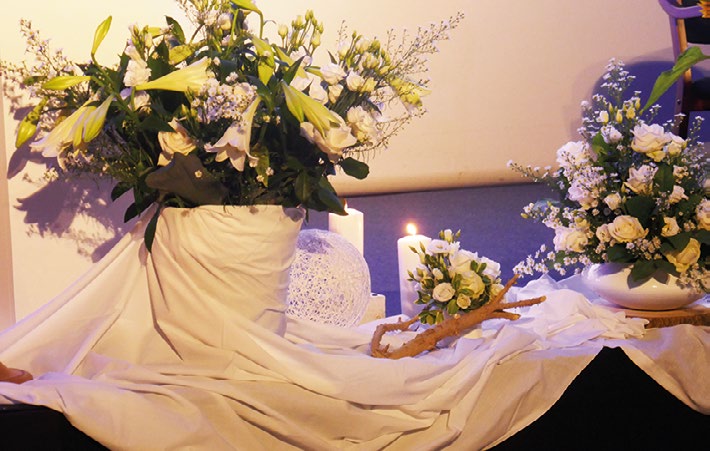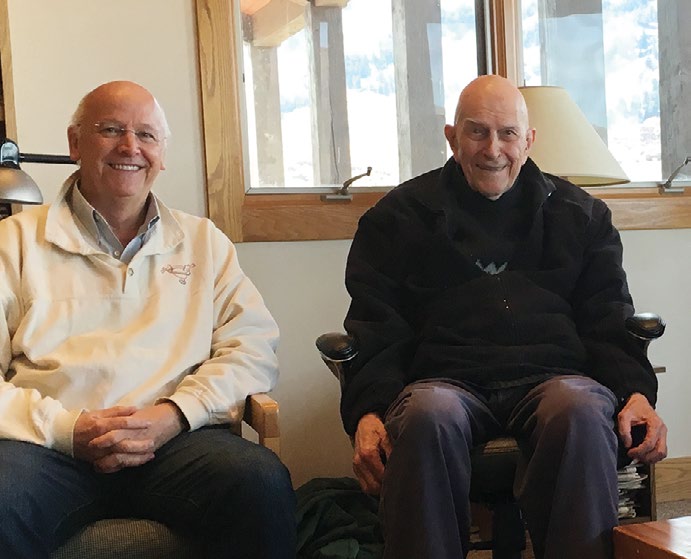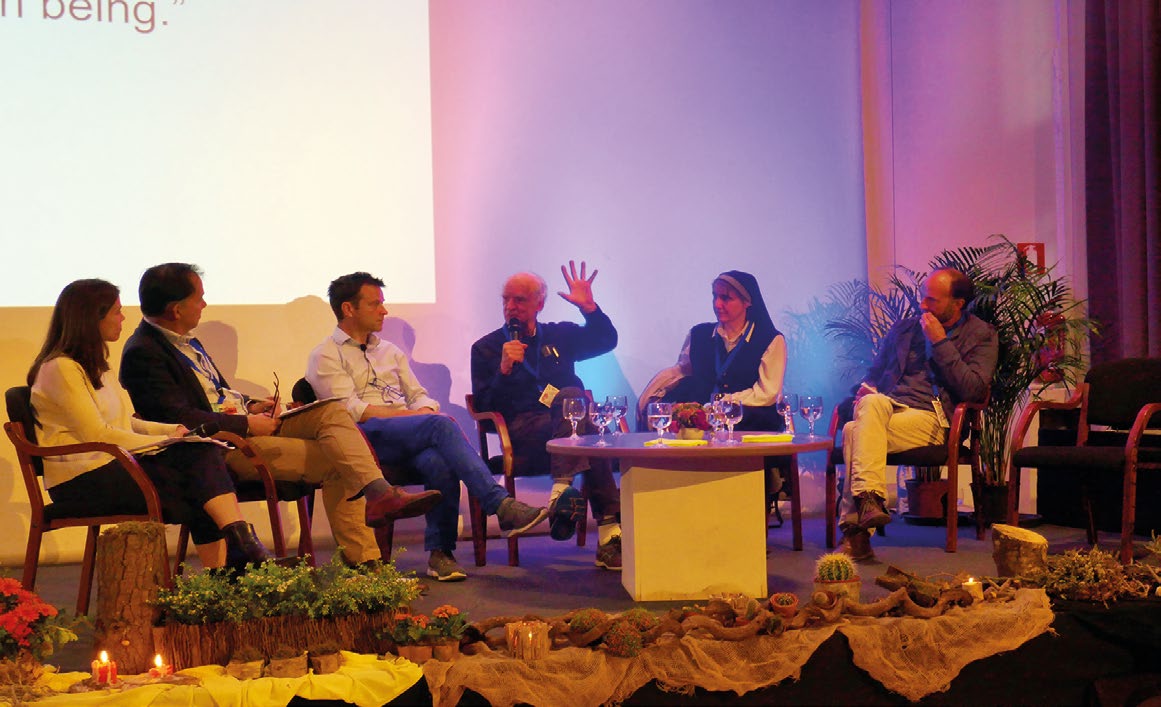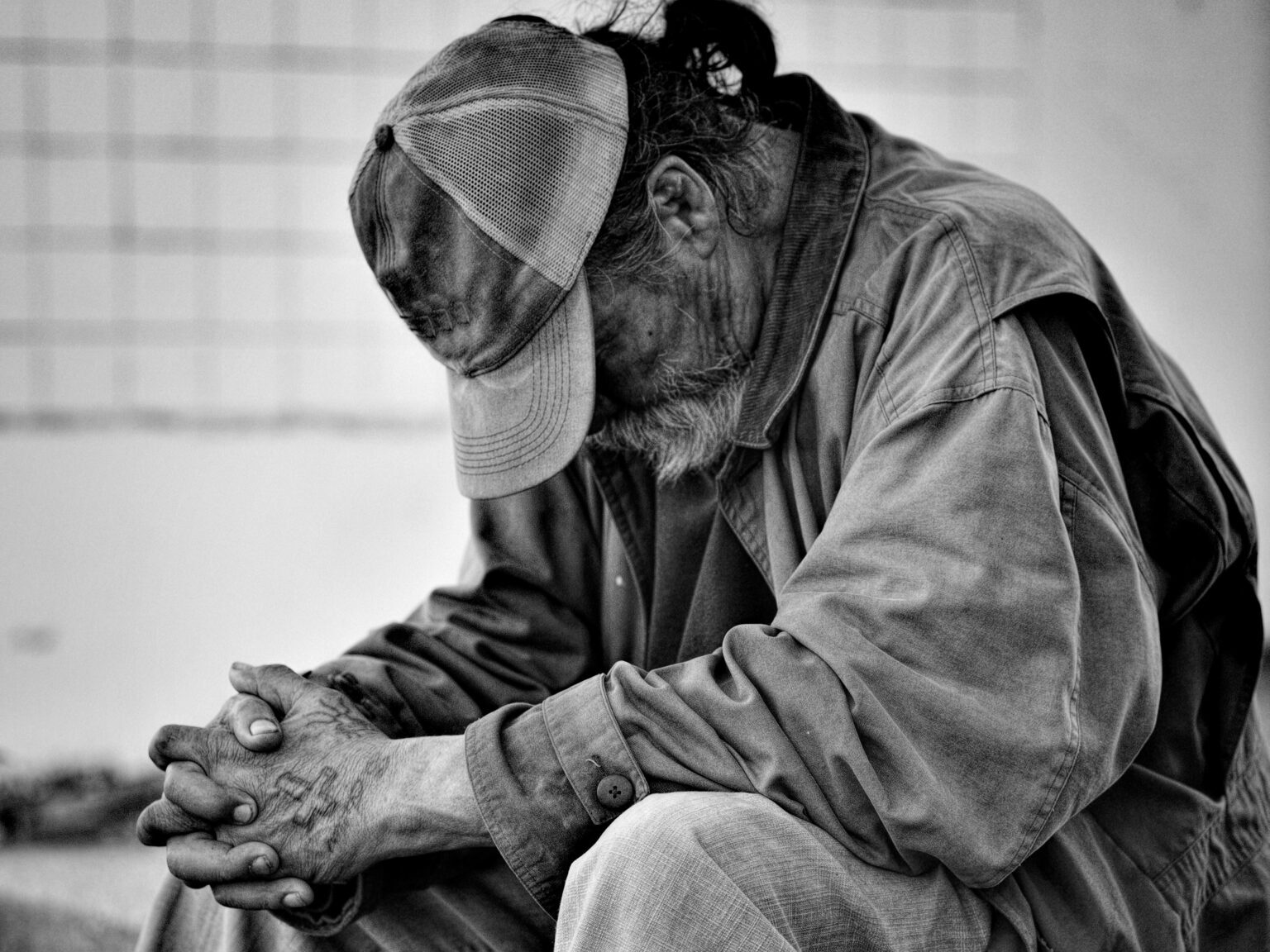Dearest Friends
As you may have heard, the John Main Seminar this year was a very extraordinary one. It felt for me that, after the 1991 Seminar, led by Bede Griffiths, where we first formed the World Community, this year’s was the most significant. It seemed to draw back the veil that usually covers things to show how our community’s life and work form our mission to share the gift of meditation and how it touches the world today.
As a young monk I went to Montreal with John Main to start the small community that within fifteen years was to grow into the World Community. My life in those early days soon became very busy. Apart from meditating four times a day within the daily monastic routine, I was studying theology in a foreign language, cleaning the house, preparing rooms for guests, doing the gardening, helping with the cooking and nervously standing in for Fr John when he was away. A bit overwhelmed at times, I never felt it was too much: it seemed a personal adventure giving the meaning to life I had been looking for. And it felt a privilege and relief to be part of a mission so much greater than myself. Soon after arriving, I wrote to a monk, a friend I had made during my novitiate. I described the bustling life of the new community in a new country. But I was sadly deflated when I received his response and read in it a rebuke when he said something like ‘personally I think the real monastic life is one where nothing happens, nothing changes’.
Nothing changes? This idea of an immutable reality around which we revolve is deeply embedded in religious imagination: I am the Lord, I change not (Mal 3:6); the unchangeable character of his purpose (Heb 6:7); Jesus Christ the same yesterday, today and tomorrow (Jms 1:17) It seemed to me both true and untrue. In biblical thought this unchanging reality is projected onto God who has often been imagined as the ‘supreme being’ – supreme but still ‘a’ being among many other beings. This dualistic sense of God is both true and untrue. God is other but we can know this other in ourselves in a way where there is the full oneness that Jesus prayed for us to know. In Asian wisdom this unchangeable essence is even identified with our true self – the personal Atman who is one with the cosmic Brahman. The Gita says that no one can destroy this unchanging reality. Our bodies are known to end but the embodied self is enduring. In different ways all wisdoms point to the same paradox of how God mingles, merges and mixes with the human.
“When you sense that this stillness is a presence, everything changes for you”
The unchangeable means simply what really and truly is. Whatever does change – every moment and each breath, every cell of our body and each thought in our mind– is a step into this union with God. The change that is part of life itself shows us that God is not a being, even a supreme one, but Being. Without Being nothing is. We cannot live apart from this Being although we often think we can. We are therefore on a daily pilgrimage from the unreal to the real, from what seems to be real until it changes into the real and gives us the taste of the blissful fullness of being. We drink from its spring in the now that is in every passing moment if only we open ourselves to it. We open to it by doing what we are meant to do. Sometimes, when it feels too much, we learn to be content to do the best we can and to find peace whatever happens. By building times of stillness even into the busiest days, we give our wholehearted attention to being, laying aside for a while the endless tasks we have to accomplish. In the times of meditation, we square the circle, allowing contemplation and action to merge. And so each day we do our bit to change the world.
My friend’s response saddened me by what to me seemed its lack of sympathy. I had hoped for more understanding and perhaps approval. But it reminded me how I had first been attracted to monastic life because of the mysterious stillness I had already begun to sense in my life. When you sense that this stillness is a presence, everything changes for you. From the outside, however, as with meditation, it might look boring, monotonous or escapist. But, inside or outside the monastery walls, practice builds the contemplative life.
Contemplation ‘sees this core stillness’; then it reveres and sustains what it sees. But it is a dynamic stillness that changes the one who sees it. Therefore, we are always contemplatives in action. No two days anywhere in any situation are the same. How they differ will depend on what we are called to do during our times of action. The experience of being – to which meditation returns us even on the busiest of days – is a stillness that is both always the same and always changing.
This is the paradox which connects to the Seminar. This year we invited several individuals – active and successful in their different fields – to reflect on how the stillness of contemplation can help us see the way forward, through our disturbing global crisis. Such active individuals could address this because, in their own lives through a contemplative practice, they knew what it means to enter the paradox of being and action. This paradox – that looks, as it did to my friend, like a contradiction of polarised opposites – is really a simple mystery. It challenges our world. It summons us to see it in every changing day of our lives.

In the following pages you can taste some of the powerful insights our speakers offered. They spoke from first-hand experience of the crisis of democracy, of leadership, of medicine, of science, of social identity and of religious consciousness. Like biblical prophets who addressed the social issues of their times, our speakers did not pull their punches. The crisis we face today globally is undeniable. We cannot deny it now any more than we can deny climate change. The daily news reminds us of it. The speakers did not offer simplistic explanations or quick solutions. They knew that meditation does not solve our problems. But they also knew that contemplation transforms the way we approach and deal with those problems at every level.
With each speaker we could sense a common pattern in what they were exposing and describing from different fields of action. They spoke of the loss of vision and the misguided direction reflected in the changes in their world. Increasingly social and political lives are suffering from polarisation and the violence always hidden in extremism. Leaders who should be helping society to reconcile and control the forces of division seem often to take delight in fostering conflict for their egocentric, shortterm ambitions. The arts of medicine and science are often hijacked and devalued by mechanisation, greed and power. Economics and finance fail to manage the rampant selfishness that increases the gulf between the richest and the poorest. Religion, too, is marked by polarisation and the spirit of condemnation. When we no longer see that change happens around a centre of stillness, contradiction becomes division. When the bridge between the surface of our lives and its depth dimension collapses, change becomes crisis. Paradox becomes contradiction, and division becomes hatred.
The still-point of the moving world is a point of unity: where opposites marry and learn to get on with each other, where dualities cease being a cause of friction and smooth out their jagged differences and, where in reciprocal acceptance, we find ourselves in the other. But we cannot prevent differences from becoming divisions without first plunging into the black hole of duality. In the mystical tradition this is the Dark Night which for St John of the Cross is the spiritual crisis we must all in some way pass through. In his poem we see how we are driven into this night ‘by no other light or guide than what burns in our heart’. There is no escape from the deep interiority which Jesus calls the ‘inner room’ of our prayer in which we meet the ‘Father’ (the source of Being) in ourselves and ourselves in Being. We arrive through this vortex in a mysterious experience, a ‘place’ where appeared.
..he was awaiting me, him I knew so well, there in a place where no one
In the place where duality is pierced through and transcended the ‘other’ is our self and we are the ‘other’. Is this not the same paradox that Jesus means by saying:
The Father and I are one
The entry into this unity is not a running away from conflict and differences. Instead, it is precisely what helps us to deal with the problems they create in our personal lives and in all the great fields of action which our speakers represented. Meditation awakens this awareness from the first step we take on the inner journey. The contemplative mind continues to grow long before we 4 www.wccm.org Meditatio Newsletter November 2018 arrive at full union. Because it is a life-journey, this is why we need so urgently to teach meditation to the children who will have to deal with the crisis we bequeath them. This contemplative awareness is inbuilt even if we feel we have lost it. It is not taught or downloaded into us: it is awakened.
Without it, the dualities, oppositions and divisions of life destroy both us and the wisdom our societies need even to survive. The terminal stage of social disintegration begins with losing the taste of wisdom.
We are physically dualistic. The brain has two hemispheres; we have left and right arms. About 90 per cent of people are right-handed. Does this mean left-handed people are bad? They are different and in many cultures the difference is positive. Left-handedness is associated with wisdom, healing and artistic gifts. But in other cases left-handedness is associated with uncleanliness or suspicion. The proportion of homosexuality is thought to be about the same as left-handedness – although the American population thinks (or fears) that 25 per cent are gay.
Demonising the differences between ourselves and any minority dehumanises everyone. Jews, Muslims, gays, immigrants or ‘the other side’ in politics are then easily exploited and scapegoated. The rising levels of violence or malevolence induce a state of inebriation and become addictive as many areas of political life reflect today. The tragic, often fatal, mistake of judging someone in one dimension in the terms of another, ruptures our contact with reality. When it is too late, the atrocities that arise from this chasm remind us of what we have lost.
A common theme of the Seminar speakers was the polarisation that leads to a descent from crisis to chaos. This is political: as we see in the forces of divisions being stoked in European, Middle-eastern and American societies. But it occurs too in the professions of medicine or education, for example, when the essential purpose, the art of those basic fields of civilisation has been lost and forgotten. In medicine, when the distinction between healing and curing is ignored. In education when the whole person is reduced to economic usefulness or academic categories.
Seventy years ago Simone Weil, one of the great minds and spiritual pioneers of our era (who died at thirty-four), saw all this unfolding in the worst events of the global infection of the Nazi madness. As a prophet, she saw into the truth of her moment and therefore saw truth itself even in the worst. Seeing the truth, which is seeing God, will always be painful when we still have illusions that resist and need to be dissolved. Investing in illusion denies the truth. But, like our speakers, she did more than see and describe the problem: she saw with acute clarity the remedy and way forward.
“The contemplative response to the crisis of change: deep, pure, selfless attention”
Attention, in her vision, is the ‘only human faculty of the soul that gives us direct access to God’. By attention she meant far more than thought or imagination. She meant what her predecessors in the mystical tradition called the pure and selfless attention that is love. John Main helps us see that this is what we are doing when we meditate and take the attention off ourselves: in meditation we are not thinking about God or talking to God… We are being with God.
The contemplative response to the crisis of change: deep, pure, selfless attention. The test of true contemplation is not just does it makes us feel better or alleviate stress: it is whether it changes, indeed, transforms us. Religious institutions today, especially in the West, still largely lack the contemplative vision necessary to catalyse this transformation. In many religious places, things are improving slowly; there are leaders with the vision to rebuild the broken bridges. But as a whole the institutions of religion still fail to connect with the contemporary crisis or even to understand it.
The acceleration of change paralyses the capacity to adapt which is indispensable for survival. Even worse, and often among the younger pillars of the institution, the response becomes a call to restore the past rather than explore the future. Religious language then becomes a dying dialect. The preoccupation is ‘to go to church’ rather than understanding who is the church: the authority of the institution is not tested alongside the authority of personal experience. We pray for traditional vocations rather than seeing how the roles of laity and clergy have irrevocably changed. With the aggressiveness of those who know they are losing, moral lines are defended. In any argument there comes a point when hammering home your answer is counterproductive and it is more persuasive to ask the right questions. At the Seminar we were introduced by Charles Taylor to the difference between those who are seekers and those who are dwellers within traditions: we need dwellers who are also seekers.
The most important thing worth seeking is the source of being. It goes by many names but this source is universally seen to be experiential not dogmatic. In the end – and the end comes to each of us – we are saved The contemplative response to the crisis of change: deep, pure, selfless attention Meditatio Newsletter November 2018 www.wccm.org 5 by what we learn and know not by what we believe. Dogma should flow from experience and insight and this helps with its constant updating. Ideas assist but cannot control access to experience. Jesus’ prophetic anger against pharisaical religion has never been more contemporary: it showed how religion itself can block access to the divine experience. With the same intensity Simone Weil says that ‘only contact with the divine can deliver us from evil’. The only alternative to this contact – the contact point is contemplation – is the law of the jungle, the endless multiplication of divisions, the primitive morality of eye for eye and tooth for tooth. When this morality becomes public policy we have already re-entered the dark ages.

Contemplation is vision not ideology. We are changed into what we truly see. Contemplative wisdom teaches us that there are deepening levels of vision, from the physical and scientific, to the intellectual and imaginative and, beyond them, to the vision of spirit. The first two levels must also be developed but they remain dualistic. I am looking at you. Do I like or maybe hate what I see? A deeper vision is to see you in me and myself in you. How can I love or hate you without loving or hating myself? This is what we mean by the dualistic and unified ways of seeing which shape the kind of world we inhabit.
The gospel reflects this. It is a way of life and a way of seeing made up by overlapping dimensions of contemplation and action. Jesus showed this in the two aspects of his teaching and example: on one hand, loving, defending and affirming our neighbour and, on the other hand, the experience of contemplation.
It was a deeply serious seminar. The talks and discussions came out of a unified vision of things, a union of heart and mind. They addressed the real fears and sadnesses felt by any wakeful, modern person. Yet the mood was ultimately joyful and, in the end, surprisingly hopeful. Where did the joy and hope come from? They came from a shared seeing of the bright stillness around which all change revolves. I hope you will be able to share this moment that brought such meaning to our community’s life and work. You can download the talks or watch them online and maybe listen or watch them with others with whom you can discuss them.
I feel sure that Fr Thomas Keating, the founder of Contemplative Outreach, our sister contemplative community, would have relished this John Main Seminar. If he had been well enough we would have invited him to contribute his vision of the contemplative renewal of society. The world has been diminished by his passing. But it calls us to feel how thin can be the veil between the worlds of time and the eternal present, between action and contemplation and between the problems of contradiction and the mystery of paradox.
Most importantly, as Fr Thomas understood, we need to be people who see. These issues are not abstract. We live them each day of our lives, in our families and communities. We struggle with them as we try to make the best decision in the face of impossible choices. The great teachers in our tradition all call us to see that contemplation is seeing and so that the contemplative response to the challenges of our time is the best contribution we can make to go forward with hope. Experiencing unity within ourselves breaks the stranglehold of polarised views and hostile attitudes. Non-duality means love: including love of our neighbour and whatever ‘others’ or minorities we fear because they do not seem like us.
Our meditation groups silently influence the direction the world is taking. So do events, like the John Main Seminar, when we come together to grow the community that meditation creates: a universal community of contemplation, made up of many beliefs. This is our human goal as it is also the communion that nurtures hope.
With much love






